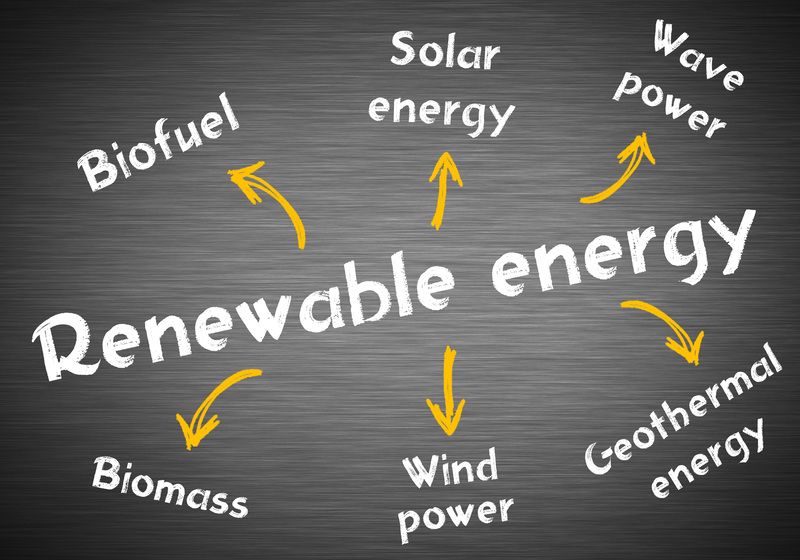Practical Actions for Reducing Waste and Enhancing Home Efficiency
Achieving a comfortable, eco-friendly, and cost-effective home doesn't have to be complicated. With increasing awareness of environmental issues and the rising costs of energy and resources, reducing waste and enhancing home efficiency have never been more important. This comprehensive guide dives into practical actions, innovative ideas, and sustainable habits that will help your household become greener, more efficient, and kinder to your wallet.
Why Focus on Home Waste Reduction and Energy Efficiency?
Every home produces waste and consumes resources, but small changes can have a huge impact. Cutting down on waste fights pollution, protects landfills, and conserves resources, while enhancing energy efficiency saves you money and reduces harmful greenhouse emissions. Together, these actions boost your household's sustainability and comfort.
Benefits of Minimizing Waste and Optimizing Home Efficiency
- Lower utility bills
- Improved indoor air quality
- Increased home value
- Reduced environmental footprint
- Better health for family members

Smart Strategies to Reduce Household Waste
Efficient living starts with a mindful approach to what you bring into your home and how you dispose of it. Here are practical actions for reducing household waste while maintaining convenience:
1. Embrace the Three R's: Reduce, Reuse, Recycle
- Reduce: Buy only what you need. Choose products with minimal or compostable packaging.
Example: Opt for bulk food stores to avoid plastic packaging. - Reuse: Invest in durable, multi-use items.
Example: Replace paper towels with washable cloths. - Recycle: Separate recyclable materials and organic waste from general trash. Familiarize yourself with your local recycling guidelines to ensure you're not contaminating the process.
2. Compost Organic Waste
Food scraps and yard trimmings make up a significant portion of household waste. Composting transforms these materials into nutrient-rich soil for your garden. Consider setting up a compost bin or pile in your backyard or even a compact indoor composter for apartments.
3. Smart Shopping: Cut Down on Food Waste
- Plan meals and make shopping lists to avoid over-purchasing.
- Learn to store food correctly to extend its shelf life--use clear containers and label leftovers.
- Practice "first in, first out"--use older items before new ones.
Enhancing Home Efficiency: Energy and Water Saving Tips
Once you've tackled waste, focus on actions that promote home energy efficiency. Simple upgrades and mindful usage can lead to dramatic savings and minimize your environmental impact.
1. Switch to Energy-Efficient Lighting
- Replace incandescent bulbs with LED or CFL lights which use up to 80% less energy.
- Use natural daylight whenever possible by installing sheer curtains and keeping windows clean.
- Turn off lights when leaving a room to prevent unnecessary electricity use.
2. Insulate and Seal Your Home
Proper insulation traps heat inside during winter and keeps cool air in during summer, reducing the need for heating and air conditioning. Focus on:
- Attic and wall insulation upgrades
- Sealing windows and doors with weatherstripping or caulk
- Covering drafty areas with rugs or insulated curtains
3. Upgrade Appliances
Modern appliances are designed to use less energy and water, and often perform better too. Look for the ENERGY STAR(R) label or similar certifications when buying:
- Refrigerators
- Washing machines and dryers
- Dishwashers
- Ovens and stoves
Unplug devices when not in use or use smart power strips to eliminate "phantom" energy consumption.
4. Use Water Wisely
- Install low-flow showerheads and faucets to reduce water use by up to 50%.
- Fix leaks promptly--a dripping faucet can waste hundreds of gallons annually.
- Run dishwashers and washing machines only with full loads to maximize efficiency.
- Collect rainwater for outdoor plants and consider drought-resistant landscaping.
Adopt Sustainable Habits for a Lasting Impact
Simple, daily habits can lead to lasting reductions in both waste and household inefficiencies. Encourage every family member to participate and keep the process fun and rewarding.
1. Mindful Consumption
- Before purchasing an item, ask yourself if you really need it and if it's built to last.
- Choose second-hand goods, borrow, or rent where appropriate.
2. Rethink Disposables
- Swap out single-use plastics for reusable containers, bags, and coffee mugs.
- Use beeswax wraps instead of plastic wrap and bar soap instead of liquid soap in plastic bottles.
3. Reduce Paper Waste
- Switch to digital billing, note-taking, and newspapers where possible.
- Print only when necessary and use both sides of the paper.
- Compost or recycle used paper products appropriately.
Innovative Home Solutions for Enhanced Efficiency
Take your efficiency game to the next level with smart technology and green home upgrades. While some may require investment, they deliver substantial long-term benefits.
1. Install a Programmable Thermostat
A smart or programmable thermostat lets you automate heating and cooling schedules, reducing waste when you're not home.
2. Harness Solar Power
Even small solar panel installations or solar-powered garden lights can reduce reliance on grid electricity while cutting energy costs over time.
3. Use Smart Home Devices
- Install smart plugs to control appliances remotely.
- Utilize energy monitoring systems to track and optimize usage.
4. Upgrade Windows and Doors
Modern, energy-efficient windows and doors provide superior insulation, reduce drafts, and protect your home from UV rays that can overheat interiors.
5. Invest in Rainwater Harvesting
Storing rainwater for garden use or toilet flushing can reduce your water bills and environmental impact.
Community and Shared Actions to Amplify Impact
Many waste reduction and efficiency initiatives are more powerful when embraced by whole communities. Explore these collective actions:
- Share unused items with neighbors or join a local buy-nothing group.
- Participate in community recycling or composting programs.
- Encourage local businesses to reduce packaging and offer eco-friendly products.
- Volunteer or advocate for sustainability projects in your area.
Overcoming Challenges and Staying Motivated
Change can be daunting, especially when building new habits around waste reduction and home energy efficiency. Start small, set realistic goals, and celebrate milestones as you progress.
- Track your energy and water bills to see tangible results.
- Get the whole family involved by turning eco-tasks into fun challenges.
- Remember that every step counts--consistency is key!
FAQ: Practical Actions for Home Efficiency and Waste Reduction
How can I reduce waste if I live in a small apartment?
- Choose minimal packaging and buy in bulk where possible.
- Compost food scraps using compact or community composting solutions.
- Focus on quality over quantity with household goods.
What are the most impactful energy-efficient actions for renters?
- Switch to LED bulbs and add weather stripping to doors and windows.
- Use curtains to better insulate rooms.
- Plug electronics into power strips and turn them off when not in use.
How do I get family members on board?
- Educate them about the benefits--both environmental and financial.
- Delegate tasks and track your "efficiency points" as a family.
- Lead by example with your own actions.

Conclusion: Take Charge of Your Home's Sustainability
Building a greener, more efficient home doesn't require a complete lifestyle overhaul. As you adopt practical actions for minimizing waste and boosting efficiency, you'll enjoy lower costs, improved comfort, and peace of mind knowing you're making a real difference. Start today--the planet and your wallet will thank you.